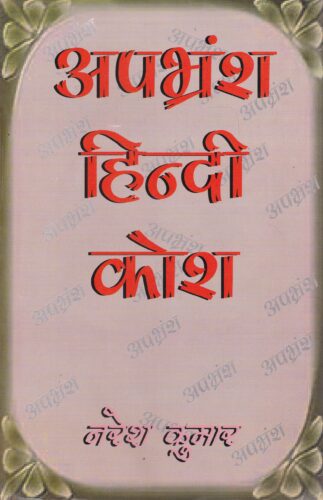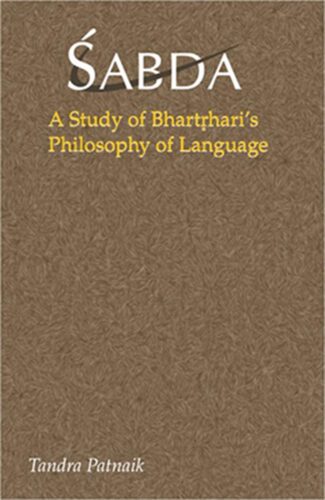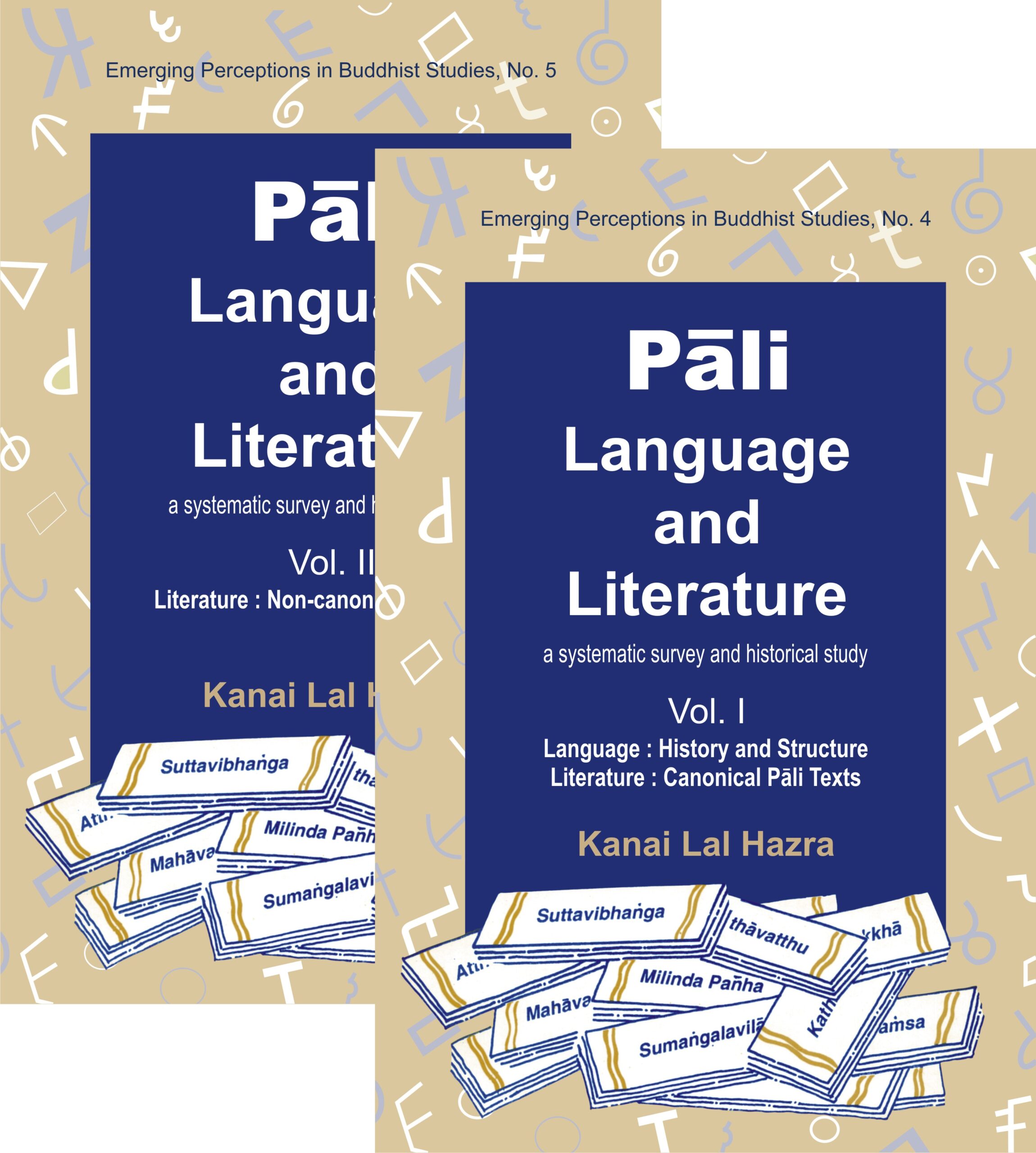

Apbharamsa Hindi Kos...
Apbharamsa Hindi Kosha
Apabhramsa-Hindi-Dictionary by: Naresh KumarThis Dictionary of Hindi Apabhramsa gives in detail the grammatical importance of words, their meanings, correct spellings, the alternate words and their various usages as mentioned by lexicographer Naresh Kumar.
₹1,500.00 Original price was: ₹1,500.00.₹1,350.00Current price is: ₹1,350.00.
ISBN: 9788124601365
Year Of Publication: 1999
Edition: 1st
Pages : xlv, 869
Language : Hindi
Binding : Hardcover
Publisher: D.K. Printworld Pvt. Ltd.
Size: 23 cm.
Weight: 1500
This Dictionary of Hindi Apabhramsa gives in detail the grammatical importance of words, their meanings, correct spellings, the alternate words and their various usages as mentioned by lexicographer Naresh Kumar.

- Sale!Sabdapramana by: Purushottama Bilimoria
₹750.00Original price was: ₹750.00.₹675.00Current price is: ₹675.00.Shabdapramana or Testimony is a formidable doctrine within Indian philosophy. A thorough investigation of this thesis is long overdue. What is shabdapramana (word as knowledge)? What is involved in hearing words? Is the understanding derived through hearing utterances direct or indirect? Does this peculiarly linguistic understanding (shabdabodha) amount to knowledge (prama), or does it depend on certain other conditions for its truth? Further, what sort of theories of meaning, understanding, and knowledge would be required to ground a successful shabdabodha as prama,> need careful attention. It is sometimes said that Indian thinkers had no particularly interesting theory of understanding. The present work sets out to address these issues issues that have engaged traditional and modern thinkers alike. Based on the classic text, Advaita Vedanta-paribhasha of Dharmarajadhvarindra (17th century), the analysis and arguments extend to the views of and criticisms from the Nyaya, Purva Mimamsa and the grammarian/linguistic schools within Indian philosophy, with a treatment of similar concerns in Western philosophy. There is a compelling thesis here that should be taken seriously in any philosophy. Long discarded as a distinct source of knowledge in Western philosophy, Testimony might be fruitfully re-examined. This could lead to mutual dialogue between philosophy and religion, and pave the way for critical metaphysics.
- Sale!Sabda by: Tandra Patnaik
₹800.00Original price was: ₹800.00.₹720.00Current price is: ₹720.00.It is the first ever study of the fifth-century scholar, Bhartriharis Vakyapadiya in an altogether modern, the post-Fregean, perspective on the Philosophy of Language. A uniquely original thinker in Indias splendid grammarians tradition, Bhartrihari overreached the limits of language analysis set by his predecessors like Panini and Patanjali constructing, as he did, a brilliant Philosophy of Language that sought to spell out, among other aspects, the subtle distinctions between the knowable and the sayable, between what is said and what is meant, between the semantics of everyday speech and literary discourse. Sadly, Bhartrihari has, through the centuries, suffered neglect, largely because the Grammarian School never figured in the six major systems of traditional Indian philosophy.
For the first time, this monograph tries to reinterpret Bhartriharis position as a philosopher, emphasizing the high relevance of his Vakyapadiya to modern Western thought. A reputed scholar of grammar, philosophy and Sanskrit studies, the author presents Bhartriharis analyses of language methodically, unbiased. And, significantly, in contemporary philosophical idiom with contextual focus on the views of modern Western philosophers: Frege, Wittgenstein, Grice, Austin, Davidson, Searle, Strawson and the like. Also offered here is a lucid exposition of the Sphota Theory.
Growing from Dr Patnaiks a decade-long research on Bhartriharis philosophy, the volume highlights not only ancient Indian contribution to the study of language, but the interconnectedness among its indigenous approaches to linguistics, philosophy, logic and aesthetics as well. - Sale!Pali Language and Literature by: Kanai Lal Hazra
₹2,500.00Original price was: ₹2,500.00.₹2,250.00Current price is: ₹2,250.00.In Pali is preserved the Buddhist canon. Which, considered as the most authentic form of Buddhavacana, constitutes the very matrix of its 2500-year-long Theravada tradition. A refined, widely-spoken language of the early Middle Indic (Indo-Aryan) stage: about bc 600-200, Pali has also left, for posterity, a splendid legacy of secular literature that captures contemporary socio-cultural milieus not only of India, but of Myanmar, Thailand, Sri Lanka, and other neighbouring countries as well. Here is, in two volumes, a fascinating, well-knit study of the Pali language, and also of its literature: both canonical and non-canonical. Beginning with a systematic description of the language, its historical evolution, phonology and major grammatical categories, VOLUME 1 takes an indepth, critical look at the canonical Pali texts all the three Pitakas : the three baskets (collections): the Vinaya, Sutta and Abhidhamma, which, among other things, embody Sakyamunis own universal message, the writings of his immediate monastic followers/disciples, the basic principles of shula (ethical behaviour), the disciplinary codes for the sangha and, above all, the Theravada philosophy in its truly pristine frame. VOLUME 2 surveys nearly the whole variety of Non-canonical Pali Literature covering creative writings, manuals, and as many as 25 chronicles: from Sri Lanka, Myanmar, and Thailand besides numerous commentaries of the old-world scholars, like Buddhadatta, Buddhaghosa, and Dhammapala. In focus here are also a range of treatises on law, grammar, lexicography, and poetics including rhetorics and metrics. A painstakingly documented work with a comprehensive index, involving years of Dr. Hazras research effort, this book is invaluable to the scholars/researchers of Buddhist Studies, specially of Theravada Buddhism, Pali language and Pali literature.
- Sale!Objectivity & Communicability of Meaning by: Sadhan Chakraborti, Gangadhar Kar,
₹450.00Original price was: ₹450.00.₹405.00Current price is: ₹405.00.This collection begins with the assumption that communication through language is possible. The moot question it is engaged with is whether the communicability of meaning entails the objectivity of meaning or not. The nuances involved in the idea of objectivity are deciphered and in what sense meaning is objective, if at all, is discussed in the volume.
The articles included in this volume are written from the Western as well as from the Indian philosophical perspectives. Philosophical views of Wittgenstein, Searle, Putnam, Davidson, Quine, McDowell and many such eminent philosophers from the West, and the views of scholars of Nyaya, Buddhism and Mimamsa schools of Indian philosophy are studied closely in these articles.
Researchers interested in the issue of objectivity and communicability of meaning of language will find food for their thought in reading this book. Students of philosophy, linguistics, logic, mathematics and the allied subjects in Western and Indian traditions will have a clear grasp of the nature of meaning that is made explicit in this collection. - Sale!Paninian Tradition of Grammar and Linguistics by: Rama Nath Sharma
₹900.00Original price was: ₹900.00.₹810.00Current price is: ₹810.00.The Sanskrit Tradition of Grammar and Linguistics, along with its history, is presented in view of texts and trends, where structure and content of the Ashtadhyayi find their focus on rule formulation, interpretation, and interaction. My proposal of derivation is made in view of what Panini does (acarya-pravritti) with rules of the Ashtadhyayi, and what statements (vyakhyana) were made on a given topic by Patanjali.
My presentation is all tied in with the interpretive conventions # (2) yathoddeshah samjna-paribhasham, and # (3) karyakalam samjna-paribhasham (PS) of Nagesha. It yields two kinds of ekavakyata considerations where one facilitates interpretation of a rule within adhikakars, and the other facilitates ekavakyata across domains, with no anuvritti consideration. Finally the derivational history yields a string of definitions which not only offer direction to individual derivations but also projects what rules will apply when and on what kind of string. Why does Panini repeat the use of definition terms in the Ashtadhyayi, so that they can clearly chart the path of derivation, and facilitate reconstruction of history of derivation? This all is new, and is in consonance with the tradition. The last section of this book presents a comprehensive view of modern studies on Panini to modern times.







